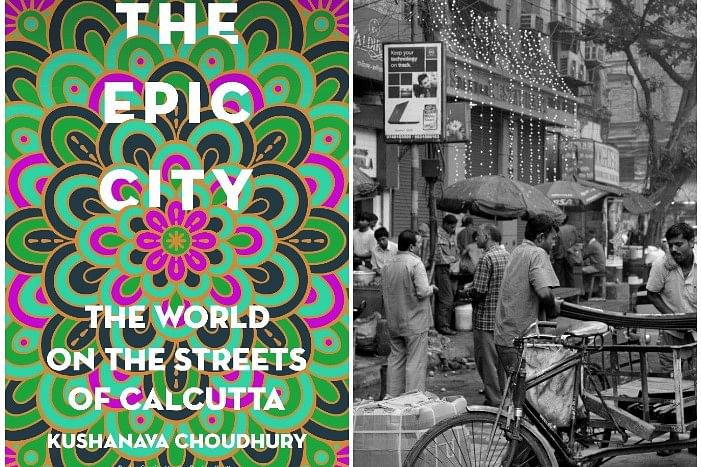Even as newer generations of Kolkatans leave their stagnant city for economic opportunity elsewhere, Kushanava Chowdhury journeyed the opposite route—from New Jersey to his birthplace, West Bengal’s capital. His debut work of non-fiction is dedicated to the inexplicable zeal that brought him back to the city.
The Epic City: The World On The Streets of Calcutta (Bloomsbury Circus, 2017) weaves together Chowdhury’s private narrative of his move to Kolkata, as well as the city’s tumultuous journey through time. Walking through the city like a flaneur, Chowdhury dishes out hidden histories and layers them with family lore. The resulting book is part travelogue, part autobiography, and part pop-history.
“We may live in squalor now, but once Calcutta had been grand and bountiful,” writes Chowdhury, relaying a wistful trope common among Kolkatan emigres. Lionising the Tagores, the Rays, and the Netajis that have each left their mark on the city, The Epic City often romanticises the legends, rather than nuancing their complex, yet indelible influence. Only by referencing the city’s darkest historical moments—including the Bengal Famine, Partition, and the Naxalite movement—is Chowdhury able to provide a reality-check to his otherwise starry-eyed nostalgic tale.
Critiquing other books’ representations of Kolkata as limited, Chowdhury argues that Kolkata must be discovered on the streets of the city and thus mimics its chaos in with his cacophonous style. It sometimes gets overbearing and at other times, meanders like a purposeless adda. Ironically, though, The Epic City fails to consider the non-Bengalis that have left important marks on the city—including prominent communities of Gujaratis, Bohra Muslims, and the Haka Chinese. Despite the book’s occasional insight and appealing narrative, these absences stick out.
